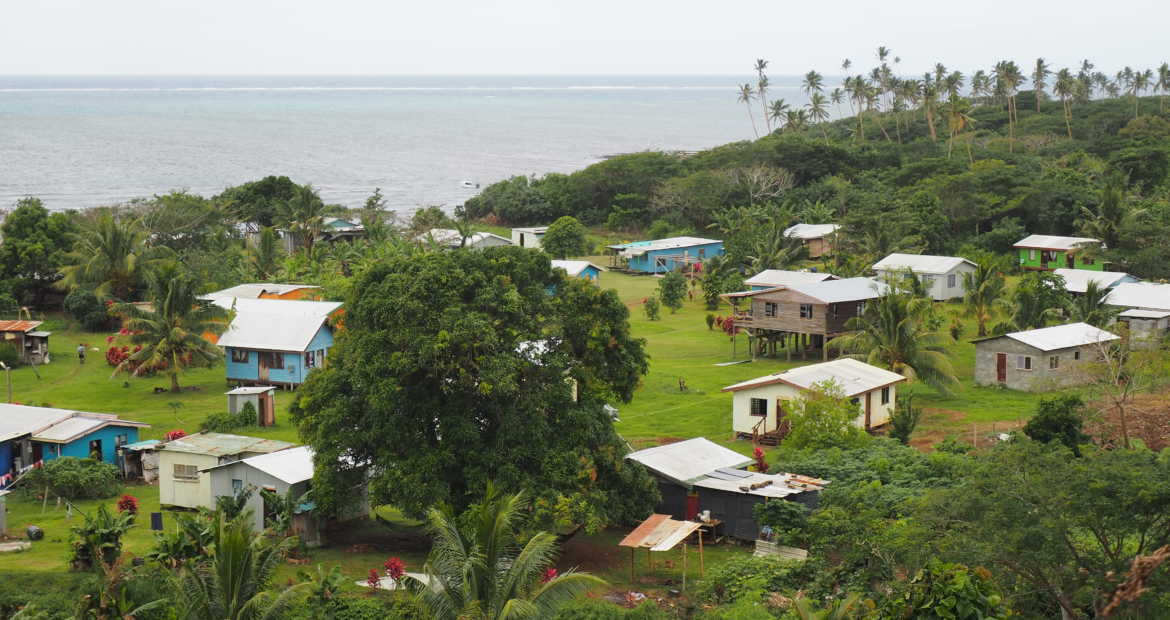On Koro Island, a rural coastal community in Lomaiviti, Eastern Fiji – the weaving and sale of traditional mats is more than a livelihood. It reflects collaborative action and the resilience of its people. In much the same way, the United Nations Development Programme (UNDP), through the Fiji Rural Electrification Fund (FREF) Support Project, is working alongside the Government of Fiji and local communities to bring the vital thread of electricity to some of the country’s most remote areas.
With support from the Australian Government’s Pacific Climate Infrastructure Financing Partnership, FREF recently launched a field mission to eight selected villages in Lomaiviti Province. The goal is to gather local knowledge and collect socio-economic and environmental data that will inform evidence-based decisions on finalizing sites for Phase 2 of the FREF project that aims to install solar mini-grids to unlock the development potential of rural Fijian communities.
In Nasau village, the reality of energy scarcity affects the daily lives of people. Most households rely on a shared village generator, powered by monthly contributions from each family.
“We face many challenges due to the rising cost of fuel,” said Amenatave Kaitani Turaga ni Koro, the head of Nasau Village. “Right now, each household pays about $20 a month, around $120 a year, just to access 3 to 4 hours of electricity per day from our diesel generator. This is not sustainable.”
The limited power supply means the generator is only used for basic lighting, helping children get ready for school in the morning and study in the evening. But that leaves out essential needs. “Many families depend on farming and fishing,” he explained, “but without reliable cold storage, a lot of our fresh produce and fish go to waste before we can sell them.”



This energy gap also deeply affects women, who lead many of the community’s income-generating activities.
“We make good money weaving mats, as there is a high demand both locally and internationally for mats from Koro,” said Nanise Yaya Viribale, President of the Nasau Women’s Group. “But the village generator only runs for three hours each night, which gives us very limited time to prepare voivoi (pandanus leaves) and weave together. We work collectively, but it’s still not enough to meet the growing demand.”
The lack of reliable electricity doesn’t just affect weaving. Many household appliances like washing machines and cooking devices remain unused because the current power supply can’t support them. “The generator only caters for lighting, getting children ready for school in the morning, and short evening study times,” she explained.
Despite these limitations, women continue to share what little resources they have and support each other in envisioning a more empowered future. “We’re already thinking about starting frozen goods businesses,” Nanise added. “With full-time electricity through solar, many of our plans can finally come to life.”
Like many rural Fijian communities, Nasau’s households want more than just lights – they want electricity that supports livelihoods. “With consistent power, we can run refrigerators, store food longer, reduce waste, and improve our income. Our students will have a better environment for learning. It would support livelihoods, education, and a better future for everyone”, said Amenatave.
The people of Lomaiviti and beyond are not just recipients of the FREF project, but they are the weavers of their own energy futures. FREF is not only expanding access to electricity. It marks a new chapter in Fiji’s journey toward inclusive, climate-resilient development through collective action.


Acknowledgment
The FREF project is made possible through the generous support of the Governments of Australia, Fiji, New Zealand, and the United Kingdom. Their investments are playing a pivotal role in advancing Fiji’s goals for climate resilience, inclusive development, and sustainable energy access for all.
In addition, special thanks to UNDP’s Catherine Heritage for leading inclusive community engagement, and to Vatimosi Delailovu for providing translation support that enabled meaningful dialogue with local stakeholders.

